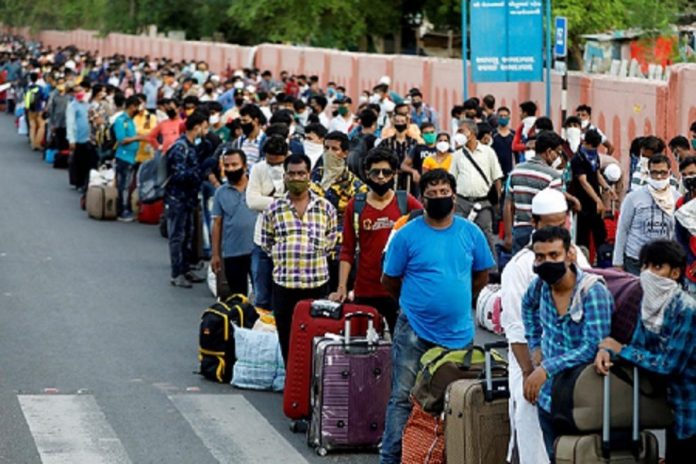Remittance contributions of migrant workers play a significant role in improving their home countries. Migrant workers can make these contributions even more helpful with good education and skills. This means learning things and gaining useful abilities for jobs. However, there are challenges. However, migrant workers face difficulties in sending the most help back home. So, education and skill development is a must for migrants.
In this guide, we’ll explore why education and skill development are vital for them. Also, we will examine the obstacles they encounter in making their remittance contributions.
Understanding the Needs of Migrant Workers
Migrant workers who move to new places for jobs, face challenges in education and skill development. Education and skill development are crucial for migrant workers to create better opportunities for themselves. Without education and skill development, migrant workers face limited job opportunities, lower wages, and struggle to adapt to new environments. This hampers their economic growth, hinders their contribution to their home countries, and diminishes long-term stability.
Improved Employability
Learning new skills makes migrant workers more attractive to employers. Thus, the chance of getting good jobs increases.
Economic Empowerment
With education and skills, migrant workers can earn more money. This helps them and supports their families and communities back home.
Adaptation to New Environments
Education helps in understanding and adapting to new places. Language skills, in particular, make it easier for migrant workers to communicate and work effectively.
Long-term Stability
Skills and education provide a foundation for long-term stability. Migrant workers with knowledge and abilities are better prepared for a sustainable future, reducing dependency on temporary jobs.
Education Programs for Migrant Workers
Education programs for migrant workers focus on identifying their needs and finding ways to make education accessible. This includes online courses and language programs.
Financial literacy education guides workers on smart money management and investment choices. These programs empower migrant workers to make the most of their earnings and build a better financial future. Teaching migrant workers about managing money is essential. Learning how to use their earnings wisely is crucial. Also, financial literacy helps them understand investment opportunities so their money can grow.
Skill Development Programs for Migrant Workers
Skill development programs for migrant workers focus on vocational training and entrepreneurial skills. Vocational training matches their skills with the jobs available in the new place.
Vocational Training
Migrant workers need skills that match the jobs where they go. Vocational training programs teach them exactly what’s required for that new place. It’s like learning skills for a specific job.
Entrepreneurial Skills Development
Some migrant workers dream of having their own businesses. Training programs help them learn how to start and run a business. This way, they can use their skills to create jobs and help their home countries grow. Entrepreneurial skills development encourages them to start businesses, contributing to the growth of their home countries. These programs aim to prepare migrant workers for the job market and empower them to build their paths to success.
Partnerships and Collaborations
Partnerships between governments, NGOs, and educational institutions are crucial for creating effective education and skill development opportunities for migrant workers.
By working together, they can design comprehensive programs that address the specific needs of migrant workers and empower them to succeed in their new environments.
Overcoming Challenges for Migrant Workers
Exploring Partnerships
Governments can talk to NGOs and schools to plan better programs. This teamwork ensures migrants get the required education and skills. Comprehensive Opportunities
When everyone works together, they can give migrant workers complete help. This means not just education but also the right skills for jobs.
Partnerships create stronger programs that truly support migrant workers in building better futures.
Legal and Bureaucratic Barriers
Sometimes, laws and paperwork make it hard for migrant workers to get education and skills. It’s important to fix these problems so they can learn and grow.
Cultural and Language Barriers
Migrant workers might face differences in culture and language. We need to help them by offering support. This way, they can understand and use education and skill programs better.
Support for understanding new cultures and languages ensures migrant workers can make the most of education and skill opportunities.
By addressing legal and bureaucratic barriers and supporting cultural and language challenges, migrant workers will have fair access to education and skill development programs.
Impact Assessment
Maximizing Remittance Contributions
Education and skills programs help migrant workers send more money back home. This helps their countries grow economically.
Long-Term Economic Impact
Education and skills affect migrant workers and their home countries over time. They can have stable and strong economic growth with the help of their learning.
Analysing Effectiveness
Education and skills programs make a big difference. This helps them make better plans for the future.
Conclusion
Education and skill development are vital in helping migrant workers send more money home. This helps their countries grow. It’s vital for everyone involved—governments, NGOs, and schools. We need to invest in education and skills for migrant workers.
By doing this, we can ensure they have better opportunities and contribute more to their home countries.
Let’s work together to prioritise and support education and skill development for migrant workers, ensuring a brighter future for everyone involved.




